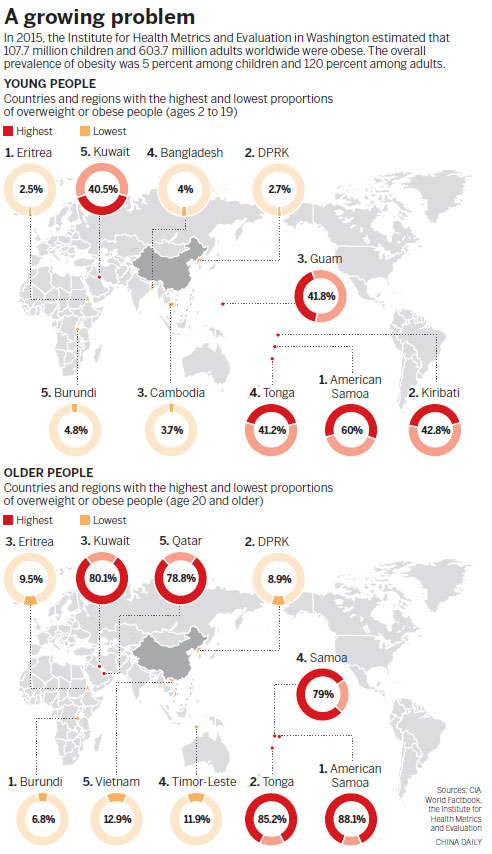Obesity 'epidemic' threatens to overwhelm nation's youth

Psychological issues
"It's not only a physical problem now, but also a physiological problem," Hong's mother said.
Eventually, the family decided to pay 39,000 yuan ($5,883) to send Hong to the Renrenpang International Weight Training Camp, which started in May and will end later this month.
At the camp, everyone exercises for five hours a day, six days a week - two-hour workouts morning and afternoon, followed by an hour's training in the evening.
"We initiated fat camp for students in 2013, and 60 signed up. This summer we have more than 200 students from across the country. The youngest is age 9," said Nan Ming, a weight-loss coach.
At 1.65m tall but weighing 80 kg, 9-year-old Bobo (not his real name) has attended the boot camp for the past two years. The difference this year is that his father has joined him. "Like father like son. Neither of us likes doing sports. So I thought, 'Why not lose a year's weight in one month?'" Bobo's father said.
Ma Jun, director of the Institute of Child and Adolescent Health at Peking University, said parents should act as positive role models for their children. "Parents should set an example when it comes to getting their kids out of doors. The children of adults who do not engage in sporting activities are much less likely to undertake any exercise, which will no doubt lead to weight gain or even obesity."
According to Bobo's father, the pressure to excel academically and win places at the best schools and universities is a major contributor to the problem. That's because many children use their leisure time to study for events such as the Aoshu, the Mathematics Olympiad, and other extracurricular classes, or to practice piano and other instruments. As a result, many children are too exhausted to exercise, he said.
"Would parents accept it if being 1 kg over the standard weight resulted in 10 points being deducted from their child's score in the school entrance examination? I don't think so," he added.
To address the problem, the government established the SunnySport project in 2007. It requires primary and middle schools to hold at least one 60-minute group exercise session on days when there are no physical education classes.
















